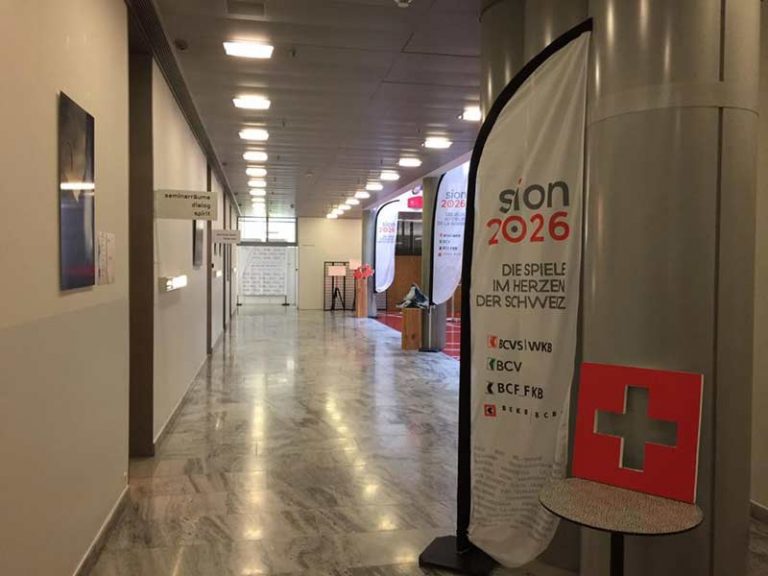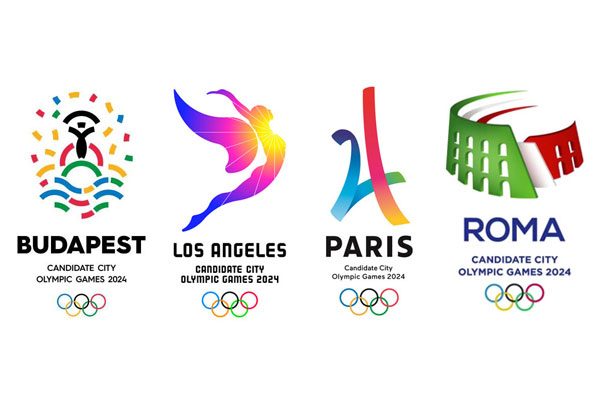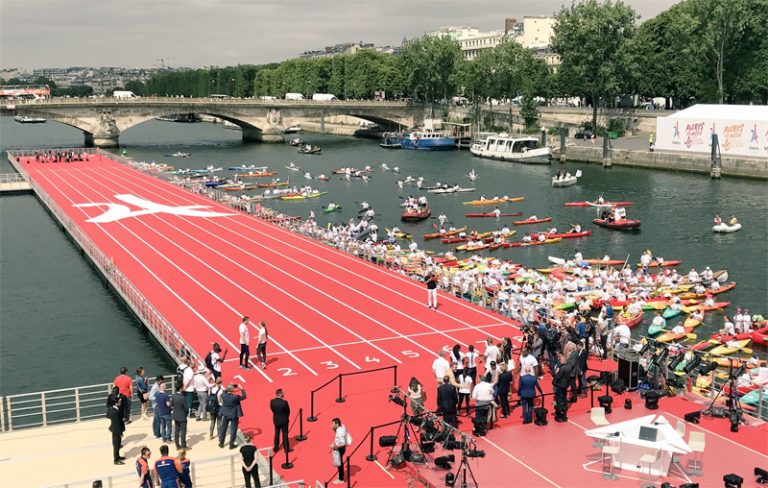GamesBids.com presents the tenth annual Top Ten list of Olympic Bid Stories for 2017. These stories impacted the course of Olympic host city bids, or the Olympic bid process, and formed interesting plot lines and story arcs for the year. In part 1 we count down #10 to #6 – click on the links for details.
This year marks our tenth annual top 10 Olympic bid story list, and it coincides with perhaps the most transformative year ever for the Olympic bid process – and maybe even for the entire Olympic movement. Some of these stories are unprecedented, others bring us back to the way things once were with the International Olympic Committee (IOC).
#10 – Alleged Corruption Exposes A Flawed Olympic Bid Process
Let’s get this one out of the way first – the inevitable element of corruption when power and money intersect in a colossal way. The IOC went through reforms following the Salt Lake City vote-buying scandal that hit the headlines in 1998, but that apparently only buried the corruption deeper and made the greed greater.
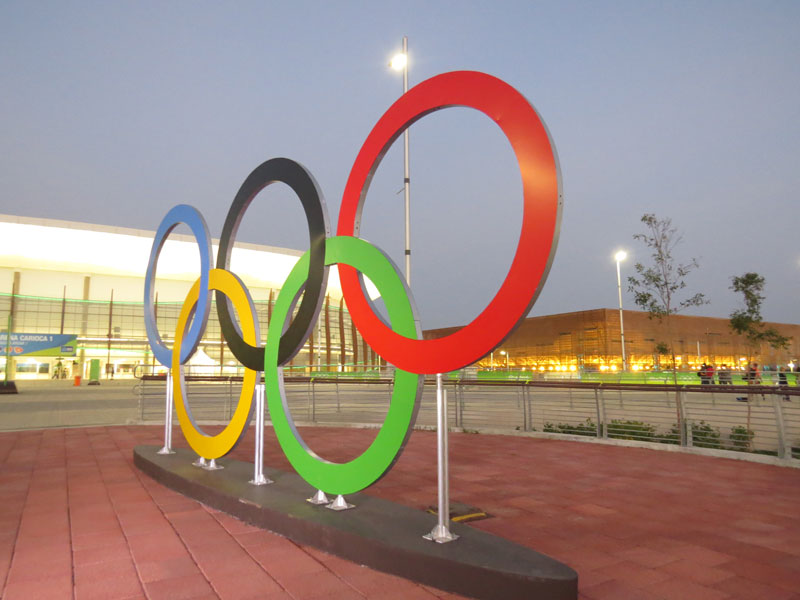
This year new allegations have drawn into question the credibility of the site selection process over the past decade, and this time the suspicion has surrounded the election of Rio de Janeiro as the first South American Olympic host city after the Brazilian city won the now tainted bid election against rivals Tokyo, Madrid and Chicago in 2009.
Central in the investigation by French prosecutors is Frank Fredericks, an IOC member from Namibia who has been accused of taking payments linked to a wealthy Brazilian businessman on the day of the election. In March of this year further links implicated Papa Massata Diack, son of then President of the International Association of Athletics Federations (IAAF) and IOC member Lamine Diack and others.
Later in the year former Rio 2016 bid and organizing committee Chief Carlos Nuzman was charged in connection with the corruption.
Subsequent to the 2016 election, Fredericks acted as a scrutineer in other bid races, including the 2022 race where Beijing defeated Almaty in a close vote. In that election the scrutineers were forced to intervene when the technology behind the electronic ballots was said to have failed and members were forced to use pencil and paper instead. The details behind the first ballot and the nature of the problem was not fully disclosed, raising suspicion.
Amid the allegations in March, Fredericks resigned from his critical IOC post as Chair of the 2024 Olympic Bid Evaluation Commission, leaving Swiss Patrick Baumann to instead take charge of the race that was then between Los Angeles and Paris – and to go on to implement new historic changes.
#9 – Innsbruck Loses Olympic Bid Referendum and Exits 2026 Race, Instilling New Fears For IOC
Evident from stories we’ll touch on further up this list, the IOC spent much of the year conducting damage-control and searching for ways to attract interested bid cities after four of six cities abandoned the 2022 Olympic bid race and three of five cancelled 2024 campaigns.
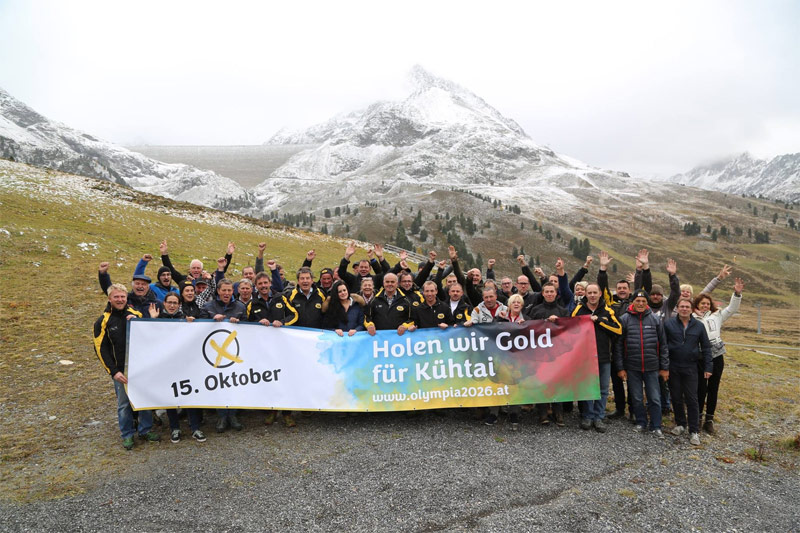
After a limited choice between two cities left the Winter Games in snowless Beijing, and an anti-establishment movement sweeping the world had soured the Olympic brand – IOC President Thomas Bach vowed that everything would change.
Yet after announcing an overhaul of the Winter Games bid process for 2026 that focused on cost-savings and sustainability, and following the historic Paris 2024 – LA 2028 double-allocation of the the Summer Games that showed the IOC can turn words into actions – the first test of the changes in the public realm resulted in failure and further fears that not enough had been done.
A referendum in Austria over Innsbruck’s 2026 Olympic bid was defeated demonstrating that European cities were still not comfortable with the costs and risks of hosting an Olympic Games. With Innsbruck out of the race and Sion in Switzerland – another European city that will face a referendum – as the only serious rival at the time, prospects for a solid host city to host the 2026 Games were dim.
#8 – IOC Overhauls 2026 Olympic Bid Process Giving More Control To Executive Board
Further sweeping reforms were introduced for the Winter Bid process in September after a overhaul ahead of the 2024 Summer Games campaign failed to change the negative bidding climate. Leveraging learnings from the recently completed double-allocation of the Games in 2024 and 2028, the IOC proposed a much more interactive process along a shorter timeframe where the IOC Executive Board has more say.

The new process delays the official application deadline by several months to instead allow cities to open a dialogue with the IOC to determine whether a bid will be mutually beneficial. But even if a city enters the race at the March 31, 2018 deadline, interactive meetings will continue and it won’t be until October 2018 before the IOC Executive Board recommends which cities may move forward, pending a rubber-stamping by the full IOC membership. Bid books will be due only after that stage which will lower the costs for unqualified cities and reduce the number of “losers”.
In conjunction with more flexible bidding rules that allow venues to be spread over a larger footprint to help increase sustainability and lower costs, the new process is designed to keep the costs of participating in the bid process lower. It also puts more control into the hands of the Executive Board members who now have more say in which bids move on to the final stage.
Over the year, the IOC has said that they’ve engaged with Sion, Calgary, Stockholm, Sapporo, Innsbruck, Salt Lake City, Denver and Reno-Tahoe yet to date, only Sion has said that they are ready to submit an application.
#7 – USA Prompted To Explore Winter Bid Options After Summer Games Double-Allocation
The United States Olympic Committee (USOC) has passed on potential Olympic Winter Games bids for years since the nation last hosted in Salt Lake City in 2002. Instead, they often said, the U.S. was focused on winning a Summer edition of the Games, trying recently with New York, Chicago and then finally having Los Angeles selected to host in 2028 as part of an historic September double-allocation with Paris for 2024.
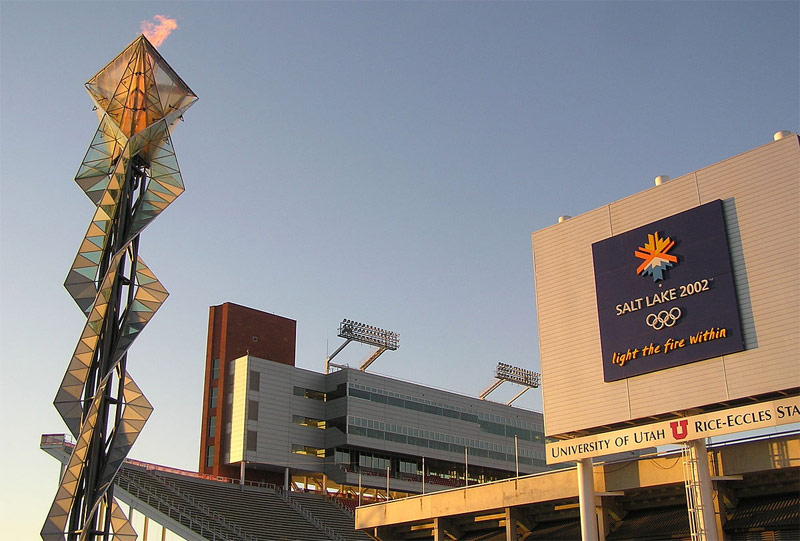
Just weeks later, talk of a Winter Games bid surfaced – but not only for a Games subsequent to those in 2028 – but possibly two-years earlier in 2026.
USOC Chair Larry Probst believes that another double-allocation is possible for the next two Winter Games and said that those cities hoping to host in 2030 should prepare for the 2026 process. Indeed, a 2026 Games would be complicated for the U.S. with L.A. already signing a deal that gives it sponsorship benefits through to 2028, and an interim Games would disrupt that.
Still, groups from Salt Lake City, Denver and Reno-Tahoe said they were preparing for either year.
By year-end the USOC had walked-back its interest in 2026 but the possibility remains that with the current volatile interest in bidding for 2026, a U.S. city could step in should there be no other viable city available to the IOC.
#6 – “Dear Calgary”: IOC Releases Unusual Statement To Keep Calgary in 2026 Race
In June, while struggling to recruit and maintain candidate cities in the 2026 Olympic Winter Games race, the IOC released an unusual statement that commented on high-level financial figures of a bid that had not even come to fruition.
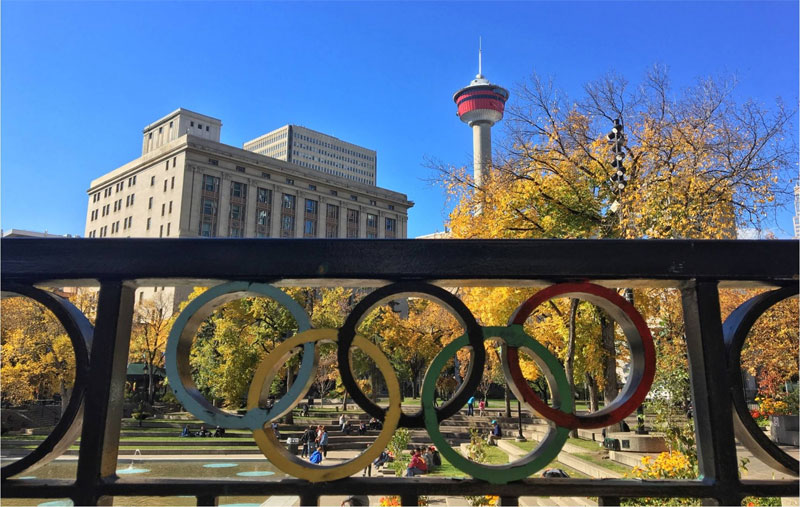
The statement by an unknown author representing the IOC media relations team, and distributed to journalists who regularly follow the Olympic movement was responding to numbers released by the Calgary 2026 bid exploratory committee (CBEC). Earlier, the CBEC had said it would cost CDN $4.6 billion (USD $3.5 billion) to host the proposed Games.
“While we have not seen the detail of Calgary’s draft budget, we remain confident that by working together to refine operational planning, that opportunities exist for significant savings,” the statement read.
“We understand that Calgary’s estimated budget has been modeled on the experience of Vancouver 2010, and did not benefit from the new approach of organising the Games, which emphasises efficiencies and sustainability in the context of a city’s long-term planning as a part of the Olympic Agenda 2020 framework.”
Since Calgary’s city council funded CBEC to explore hosting a second Games, opinions have been split as to whether financial risk and costs would be worth it. It’s clear from the unprecedented statement that the IOC is fighting to keep Calgary a contender by leveraging local Canadian media.
But the statement wasn’t distributed to the key mainstream media outlets in Calgary and after GamesBids.com reported the IOC’s opinion that the Games could be hosted at a much lower price tag, our phone rang off the hook with reporters searching for the source.
They’re just getting started, but 2017 marked the year when the IOC realized that they need to be more proactive in controlling the Olympic brand messaging as it pertains to Olympic bids, and the new 2026 bid process has begun to reflect this.
To continue our countdown from #5 to #1 please see Part 2 of our Top 10 Olympic Bid Stories Of 2017 here. Follow @gamesbids on Twitter or facebook.com/gamesbids so you don’t miss it!
